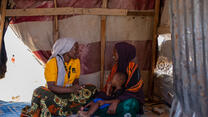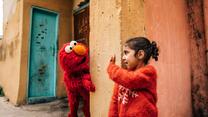The early years in a child’s life are critical in building a foundation for optimal development through a stable and nurturing environment, as described in the Nurturing Care Framework. However, infants and young children in humanitarian settings face massive challenges to survive and, even more so, to thrive.
As the number of crisis-affected people continues to rise, so does the proportion of future generations who experience the severe distress of displacement and conflict. When children are deprived of opportunities to develop, the ability of families, communities and economies to flourish is limited.
To advance well-being and reduce inequities around the world, leadership is needed to drive early childhood development in emergencies. Global and national stakeholders should come together behind a comprehensive approach for preparedness and response, requiring robust investments and continued prioritization across development and humanitarian settings.
This brief summarizes actions that programme planners and implementers should take to minimize the impact that emergencies have on the lives of young children and their families. It calls upon all relevant stakeholders to invest in evidence-based policies and interventions that have been shown to build resilience and mitigate the harmful effects of emergencies.



